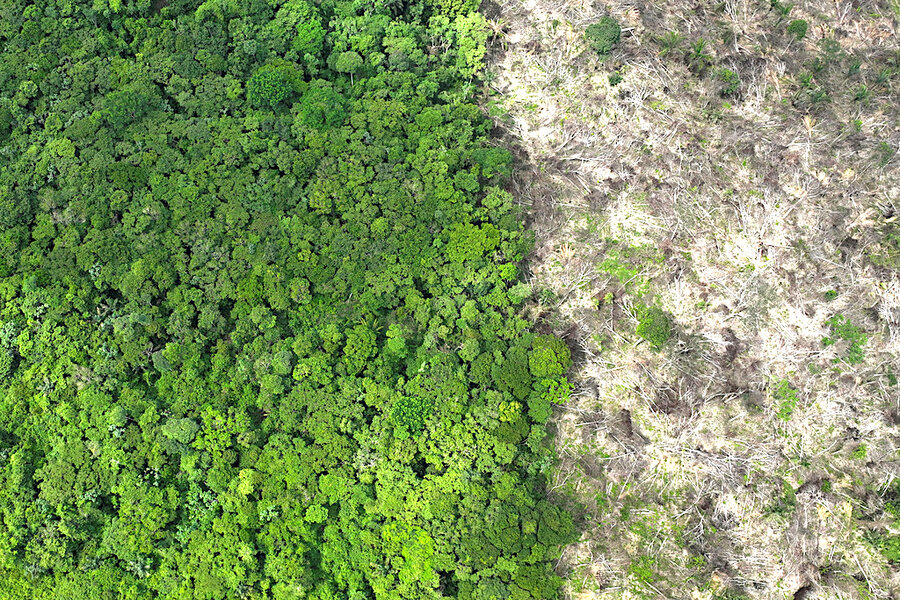The roots of forest preservation
Loading...
A few years ago, world leaders pledged to “halt and reverse” global tree loss by 2030 in response to climate change. Brazil and Colombia show how that might be done. The two South American countries slowed deforestation in the Amazon River basin between 2022 and 2023 by 36% and 49% respectively, according to new data from the University of Maryland.
Those reductions rest on the idea that environmental challenges are opportunities for renewing trust in societies torn by conflict or weakened by corrupt and distant governments. That represents a growing consensus among conservationists and peace-builders that their fields are inseparable.
Both Brazil and Colombia have tied environmental progress to local empowerment. In Brazil, President Luiz Inácio Lula da Silva returned to power last year vowing to reverse the rapid acceleration of rainforest loss that occurred under his predecessor. He restored conservation regulations and bolstered law enforcement in the country’s forests. Perhaps more importantly, President da Silva, popularly known as Lula, has made Indigenous peoples in the Amazon basin key stewards of his conservation strategy.
In Colombia, where splintered guerrilla warfare has endured for more than half a century, armed groups have engaged in illicit deforestation to fund their causes. President Gustavo Petro has made forestry protection central to his goal of negotiating peace simultaneously with dozens of armed factions and criminal gangs. That strategy is similar to a community-based conservation strategy in Rwanda that draws neighbors together in mandatory local initiatives each month to encourage peaceful coexistence.
Colombian officials have traveled the country promoting a toolkit for local environmental action that emphasizes Indigenous rights, community leadership, and shared stewardship of natural resources. The country has reversed tree loss in part by encouraging armed militias to become partners in protecting biodiversity.
Such community meetings often entail a touch of humility on all sides. “Please excuse us for talking so long, but we’ve never had this opportunity,” one local leader told Colombian officials during a public gathering on peace and environmental issues that lasted three hours.
“The story of deforestation in Colombia is ... deeply intertwined with the country’s politics,” Alejandra Laina, director of natural resources in the Colombia office of World Resources Institute, told the BBC last week. “There is no doubt that recent government action and the commitment of the communities has had a profound impact on Colombia’s forests.”
In countries emerging from conflict or periods of political instability, environmental problems often exacerbate instability. Yet as the editors of the journal Environment and Security noted last month, “bottom-up initiatives that strengthen community cohesion while addressing climate impacts and environmental degradation” show promise. In Brazil and Colombia, progress in saving forests also marks progress in mutual respect and rule of law.







